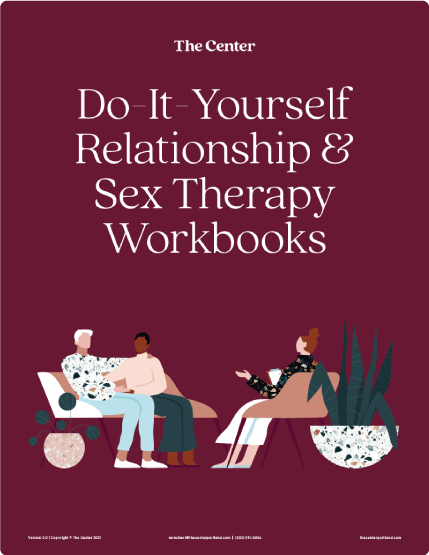Things just aren’t as “taboo” as they used to be. When there is trouble in paradise, seeking out a third-party professional can identify key issues that may be causing problems in your relationship and help you find ways to make your relationship blossom and grow. Forget all the strange and awkward couples sex therapy sessions you’ve seen on television. Choosing to attend couples sex therapy is a courageous, responsible, and decisive step in improving the sexual health and well-being of your relationship. If you’re still uneasy, here are some important things you should know about attending couples sex therapy.
Not Just for The Married
There is a notion that couples therapy is only necessary during marriages that are severely crumbling. Although many couples struggling with their marriages do see a couples therapist, they aren’t the only ones seeking expert help. Committed romantic relationships are just as serious. Couples therapy isn’t just for couples that are hanging on by a thread – there is always room for improvement in areas you may not have considered. For instance, you may find that although you’re satisfied with your sex life, couples therapy can help it become even better. From individuals that have recently begun dating, to those engaged or well into marriage, couples therapy is a positive step that can improve communication, intimacy, and the overall health of your relationship.
Therapy is for The Willing and Patient
Although even attending one couples therapy session can give you insight and perspective, achieving immediate results isn’t the purpose of attending sessions. Relationships take years of partnership and hard work. If it’s been years, and you find you and your partner still can’t get it right, visiting a couples sex therapist can help. Taking the time and putting in the effort is a positive step toward a healthier relationship. By taking sessions seriously and practicing the strategies you develop with your therapist, you will find the improvement in your relationship was worth the time and effort.
Therapists Guide, You Fix
Your therapist is there to guide you, and give you the tools necessary to improve your relationship. It is ultimately you and your partner’s responsibility to put in the work. Your couples therapist will help you identify the roots of issues and find solutions. When you and your partner take responsibility for making the necessary changes to improve your relationship, it shows each other how meaningful your relationship is, even if it was difficult to see before.
Be Vulnerable
You should feel comfortable speaking about your relationships issues, even the hard to talk about topics. Talking about intimacy issues with a stranger can seem peculiar at first, but putting your feelings on the table really does help. Your therapist isn’t there to make you feel uncomfortable or judge you. Chances are, throughout their career they’ve already heard and seen it all. It’s not unusual for sex to turn a bit stale as time goes by. Letting go of your urge to resist vulnerability is key. Couples sex therapy includes different exercises that couples should be open-minded about. Enhanced intimacy can happen from simply talking about issues, feelings, and even fantasies. The main point is to put it on the table.
The Past Stays in The Past
For couples eager to attend therapy to point fingers and bring up the past, you’ll find yourself taking a different direction. Couples that have changed their attitudes from “he or she did this” to “what can we both do better now” are couples that are improving. Couples can hold on to anger and resentment that leads to issues in communication, trust, intimacy, and more. Remember that attending couples therapy is about how to move forward, not how to punish your partner. At the same time, being able to accept constructive criticism and responsibility is vital. You will find that it does in fact take “two to tango”.
Attending couples sex therapy is becoming more and more prevalent among couples of all stages in relationships. The truth is, when your relationship is meaningful to you, not even fear or feelings of taboo should prevent you from seeking help. Attending sessions can boost confidence and result in key learning. You’re never too old for an anatomy or communication lesson.







